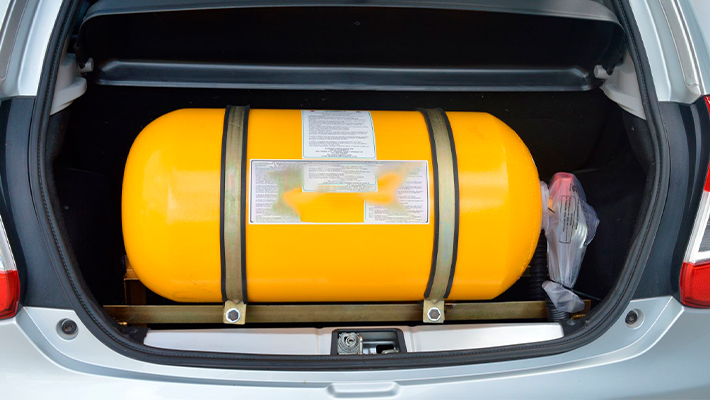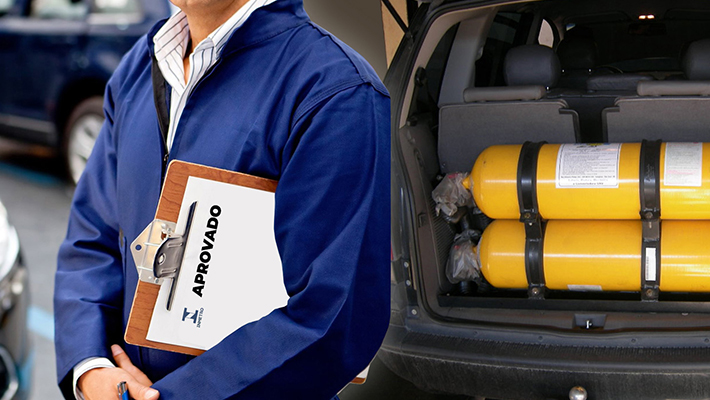
In the 23th of March, Inmetro issued Ordinance no 133, which changes the regulations for cylinders made to store NGV, in terms of requalification regulation. In force since the 1st of April, the new ordinance establishes lifespan (expiration date) for cylinders manufactured according to standards different from ISO 11439 and indicates procedures and the conditions to destroy cylinders deemed unsuitable by the re-qualifier, preventing them from being unduly reused, which could result in serious accidents. The deadline to implement these procedures in the companies that render services of cylinder requalification is until October 1, 2023.
According to Inmetro, two factors were considered to establish the validity of cylinders with over 20 years of manufacture: the wearing-down process they undergo due to the continuous re-fulling operation, which is not approved by the several manufacture standards different from ISO 11439, currently adopted, and the fact that these cylinders are not submitted to the obligatory process of certification, established since 2001 by the Institute.
The owners of NGV-powered vehicles will have the possibility of identifying their cylinder’s validity with the vehicle inspection department, or through the company that installed the system or that performs the cylinder’s requalification service.
Which NGV cylinder deadlines are already in force?

– Cylinders manufactured since 2001, pursuant to standard ISO 4705: lifespan of 23 years since the manufacture date or until 2025, whichever comes first, regardless of the deadline established for the next requalification (the lifespan ends at the vehicle safety inspection date of the corresponding year).
– Cylinders manufactured in 2000: lifespan until the vehicle safety inspection date of 2024, regardless of the deadline established for the next requalification.
– Cylinders that completed 23 years or more in April 1, 2022: lifespan until the vehicle safety inspection date of 2023, regardless of the deadline established for the next requalification.
– Cylinders manufactured according to standard ISO 11439: lifespan of 15 to 20 years counted from its manufacture date, as established by the manufacturer.
If the NGV cylinders were exceptionally made, pursuant to the ISO 9809 or ISO 7866 standards, they should satisfy the expiration and lifespan conditions described above. To read the regulation text in full click here.
The advantages of the NGV cylinders include fewer expenses with fuel—in average, they are 50% cheaper than ethanol and gasoline—they pollute less, keep the injection system cleaner, make the oil last longer, and increase the exhaustion system’s lifespan. Nevertheless, they can crack the engine’s head due to their pressure, they wear out the spark wires faster, and the engine’s power is decreased. So, takes these pros and cons into consideration to choose.


